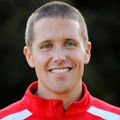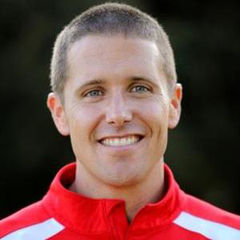Last Updated July 26, 2024 (originally published July 29, 2021)
While you may not be suiting up to compete in the Paris Olympics, non-Olympians like you and me can learn a lot from the world class athletes who are. The same process that helps these champions hone their bodies and minds to set world records can actually help non-Olympians improve their health, fitness and overall well-being. From the importance of coaching to effective recovery strategies, these training secrets can take your fitness to the next level.
Prior to the Sydney Olympics in 2000, I had the opportunity to work with Olympic hopefuls as a resident intern strength and conditioning coach at the ARCO Olympic Training Facility in San Diego, Calif. Many of the basic principles I learned living, eating and training with these “superhumans” for an entire year continue to impact my approach to health, fitness and performance.
Whether your life mission is to bring home the gold or just to feel great into your golden years, these training secrets of Olympic athletes can help you create and sustain lifelong health habits and empower you to become a “super” version of yourself.
Get a Coach
Despite being blessed with unimaginably rare talent and work ethic, Olympic athletes turn to a coach to help them weather the storms of training and competition. In addition to expertise, a coach provides critical outside perspective, accountability and motivation. This mentor also provides a soundboard for insights, frustrations and questions.
If the most talented, motivated athletes in the world turn to a coach to help keep them on track, it’s safe to say that everyone could benefit from this type of mentorship. Hiring a coach, whether that is a personal trainer or a health coach, to help you create and sustain healthy habits can provide the expertise, accountability and motivation needed to accomplish your goals in the safest, most efficient way possible.
Trust the Process
When you see an Olympic athlete ceremonially dipping their head to receive a medal, that moment is the result of following a carefully designed, strategic plan. Success at the world-class level comes from years, sometimes decades, of preparation.
During this time, the athlete and their coach continually assess what is needed to accomplish their goal. They practice trust and patience while focusing on simple details done consistently. They know that success doesn’t come overnight, so they create a plan and stick to it. The plan is modified, when necessary, but never fully abandoned.
If athletes and coaches abandoned their plans because of panic, doubt or distraction, they wouldn’t be able to build on their successes. They would constantly return to the drawing board to create another approach without giving their original plan the time it needed to yield results.
If you want to change your habits to improve your health, create and stick to a plan. Don’t assume changes will come overnight. Establish a realistic longer-term goal and create incremental goals you can accomplish along the way. Commit to simple, consistent steps that develop over time. If you follow the plan and continue to fall short of your expectations, make modifications but don’t abandon it altogether.
Recovery Is King
One of my biggest takeaways from working with world-class athletes is that they train hard but recover even harder. Just like training, their recovery time is planned and intentional.
Olympians understand that training is the stimulus for growth, but recovery is when growth and improvement occurs. Without managing sleep, stress, nutrition and other aspects of recovery, they know the impact of their training is diminished.
For us non-Olympians, the role of recovery is still critical. We are inundated with stress throughout the day. Believe it or not, most of this stress pushes us to grow physically, mentally, emotionally and even spiritually. However, just like with Olympic athletes, this growth only happens when we recover. Stress without recovery is the formula for burnout.
Recovery can come in the form of sleep, healthy nutrition, meditation or other simple practices that refill your tank. These should be planned and intentional. Relentlessly pushing yourself all day only to come home and fall face down on the couch is hardly an effective stress/recovery relationship. Consider simple, time-efficient habits you can do throughout your day to sustain your energy and performance.
Take the time to monitor how hard and how frequently you work out. If you find you’re always sore, injured or stagnant, consider swapping a high-intensity exercise day for a low-intensity day, or take the day off.
Training Quality Over Training Quantity
World-class athletes train with an unimaginable level of attention to detail. They know that while a certain degree of training quantity is important, the quality of what they accomplish during training separates the “goods” from the “greats.”
Olympians know that training correctly and strategically will ultimately pay larger net dividends than merely training more. Additionally, they don’t want to put any more training stress on their bodies than is necessary.
The same holds true for anyone who wants to improve their health and fitness. If time is a barrier to exercise for you, understand that you can often accomplish more in 20 to 30 minutes of a strategic and focused exercise plan a few days per week than you can in hours a day of wandering around the gym.
Improving the quality of exercise doesn’t always mean you have to make your heart rate skyrocket. It could mean paying attention to different aspects of technique or switching up the activities you do to be more specific to your intended goals. Hiring a professional is a great first step to maximize the quality and efficiency of your fitness plan.
As you watch the Paris Olympics, consider how these principles could help you on your journey to lifelong health and fitness.
If you are interested in learning more about how thoughtful exercise recovery is essential to maximizing your clients’ results, check out The 3 R’s of Exercise Recovery: Refuel, Roll, Remodel (worth 0.1 ACE CECs). In this course, you’ll about the timing and ideal fuel consumption post-workout, as well as movement strategies to prevent stiffness.




 by
by 






 by
by